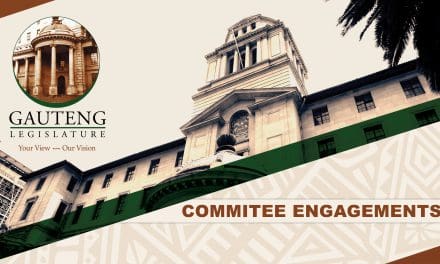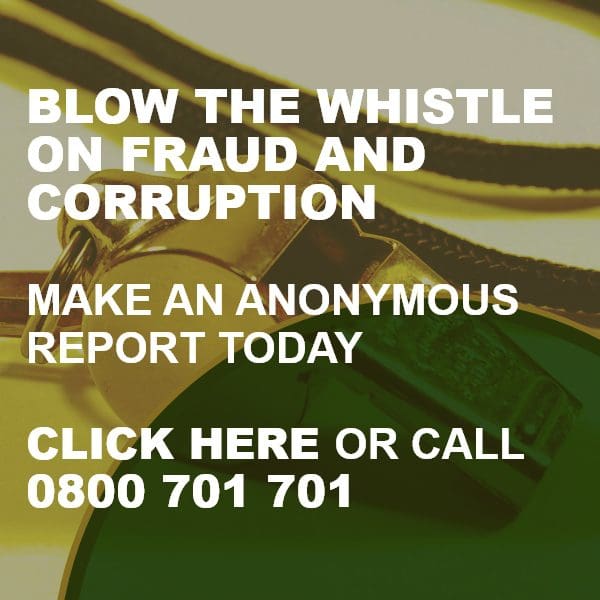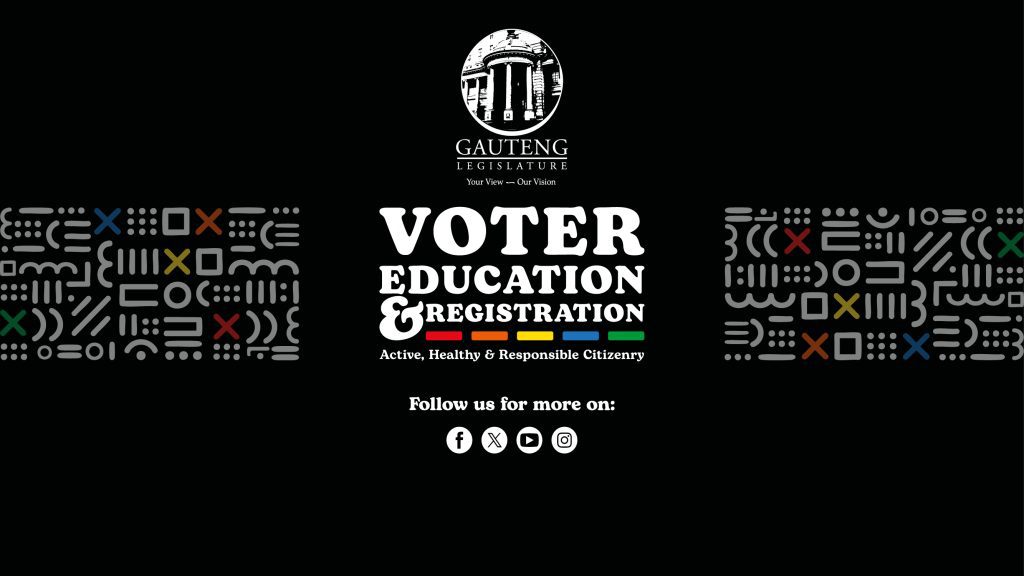A petition is a written request or complaint made by a member or members of the public to the GPL on policy or service delivery matters that relate to the departments or department entities and the municipalities in the Province of Gauteng. The Petitions Standing Committee (PSC) is responsible for considering all admissible petitions lodged with the Gauteng Provincial Legislature.
Electronic Petition
Register on the GPL ePetition Portal and submit your petition quickly and conveniently on your device.
Petitions Guide
Legislation Governing Petitions
The Constitution
Chapter 2 Section 17: Assembly, demonstration, picket and petition.
Chapter 6 Section 118: Public access to and involvement in provincial legislatures.
Chapter 6 Section 115: Evidence or infrmation before provincial.
Petitions Act
The Gauteng Petitions Act (Act 5, 2002) defines
- petitions,
- your right to Petition,
- the role of the Committee,
- how Petitions are submitted and how they are considered.
Types of Petitions
Single Petition
An individual submission from a single petitioner, concerning a particular complaint or request.
Association Petition
A submission from an association or single petitioner mandated by an association to submit that petition, concerning a particular complaint or request.
Collective Petition
A collection of signatures from a number of petitioners, concerning a particular complaint or request.
Mass Petition
Made up of individual or group submissions from a number of petitioners, concerning the same or substantially similar complaints or requests. Also known as a Group Petition.
Matters a Petition may address
Subject to Subsection 6 of the Petitions Act, a Petition may address any matter:
- Within the legislative authority (i.e. the Gauteng Provincial Legislature) of the Province
- Within the executive authority (i.e. Gauteng Provincial Government) of the Province
- Assigned to a Member of the Executive Council (MEC) in terms of the Constitution
- Relating to the provincial supervision of local government (municipality)
How Petitions are Considered
The Petitions Committee has several courses of action it may take. It can:
- Consider the petition and decide to take no further action.
- Refer the petition to another committee of the Legislature.
- Refer the petition to a person or body outside of the Legislature e.g. Member of the Executive Council (MEC), Provincial department or municipality.
Refusal of a Petition
The Committee must refuse to consider a petition if it:
- Falls outside the scope of matters mentioned above.
- Concerns a matter pending in a court of law or other tribunal or forum contemplated in the Constitution.
- Is in connection with the conviction and sentencing by a criminal court of law of a person to a period of imprisonment.
- Addresses a matter falling within the scope of a commission of inquiry, established in terms of the Provincial Commissions Act, 1997 (Act No. 1 of 1997).
The Committee may refuse to consider a petition that:
- Is illegible/unreadable.
- Does not state the correct name and contact details of the petitioner and, where applicable, the name of the association or group on whose behalf the petition has been submitted.
- Has not been signed by the petitioner, except in the case of a petitioner who is unable to write.
- Is from an individual who has made a mark on the petition as a symbol of his or her authority to submit the petition.
- That mark was made in the presence of one witness who are able to write and who by signing that petition certify that the mark is that of the petitioner.
- Addresses a matter previously considered by the committee except if that petition contains new information that may materially impact on the outcome of the consideration of the matter.
- Contains defamatory statements or improper language.
- If applicable, addresses a matter that the petitioner has not yet brought to the attention of the relevant authority, or if the petitioner has brought it to the attention of the relevant authority, the relevant authority has not been afforded reasonable time to consider the matter.
Petitions Escalation Process
The steps that the Legislature follows in trying to resolve the petition:
1. Petition received – acknowledged within two (2) working days upon receipt.
2. Conduct preliminary investigation where necessary – to verify the contents of the submission.
3. Register and allocate a reference number, if the submission meets the requirements of the Petitions Act.
4. Tabling (present the petition) at Petitions Standing Committee (“Petitions Committee”) for adoption or rejection.
5. Rapporteur is appointed to an adopted petition.
6. Feedback letter, on the outcome of tabling (petition is adopted or rejected) is written and sent through registered mail.
7. Referral to the relevant authority (provincial department or municipality) FOR INVESTIGATION AND reporting within twenty (20) working days.
8. If a report on the referred petition is not submitted within twenty (20) working days, a follow up is made and a further ten (10) days extension is given.
9. Upon receipt of a report sent to the petitioner for a written response within seven (7) working days.
10. In the event that the petitioner disputes the contents of the report or a repot is still not submitted after the ten (10) days extension, the C may decide to convene either an internal or external petitions hearing.
11. The last stage involves closure of the petition and archiving for 5 years as per the National Archives Act and Records Services Act of South Africa (no. 43 of 1996).
Contact
Ms Jabulisile Shabalala 082 606 4103 / JShabalala@gpl.gov.za
Ms Musa Mack 083 353 7684 / MMAck@gpl.gov.za
Mr Mbulaheni Likhade 072 630 0607 / MLikhade@gpl.gov.za
Mr Senoto Teane 071 603 1663 / STeane@gpl.gov.za












